Data Speaks

Opinion
28-Jun-2022
A murky world inhabited by the U.S. government, private corporations that build, manage, supply and service jails, lobbyists, and a myriad of other groups …
Welcome to the prison–industrial complex, a system that incentivizes corporate profit over offender rehabilitation and well-being.
A murky world inhabited by the U.S. government, private corporations that build, manage, supply and service jails, lobbyists, and a myriad of other groups …
Welcome to the prison–industrial complex, a system that incentivizes corporate profit over offender rehabilitation and well-being.
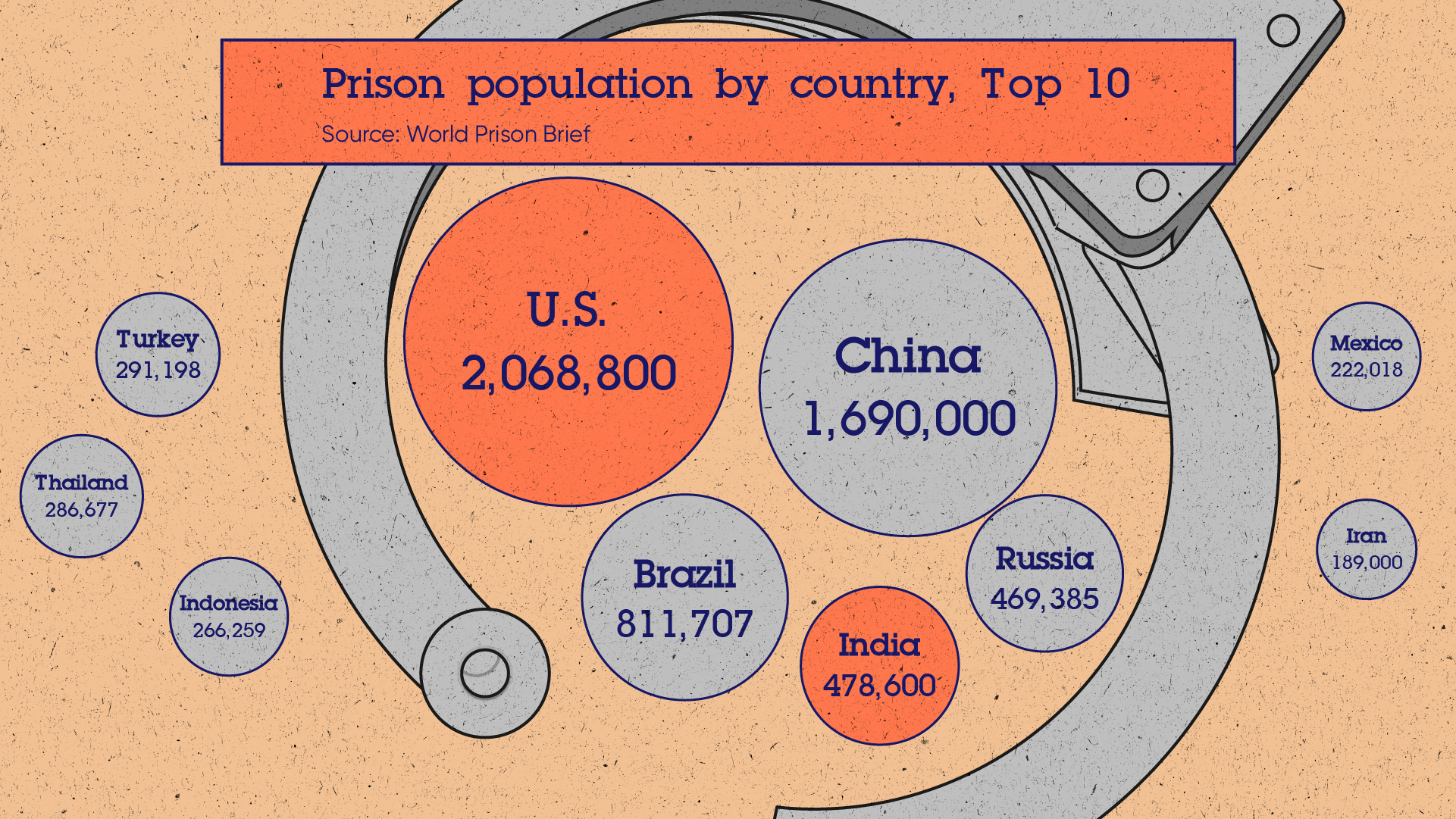
The U.S. has the largest prison population in the world. It's the third most populous country worldwide, with over a billion fewer people than India, yet its total prison population is over four times larger. The American incarceration rate is even more dramatic. Thirty-four of its states have a higher incarceration rate than any country other than the U.S.
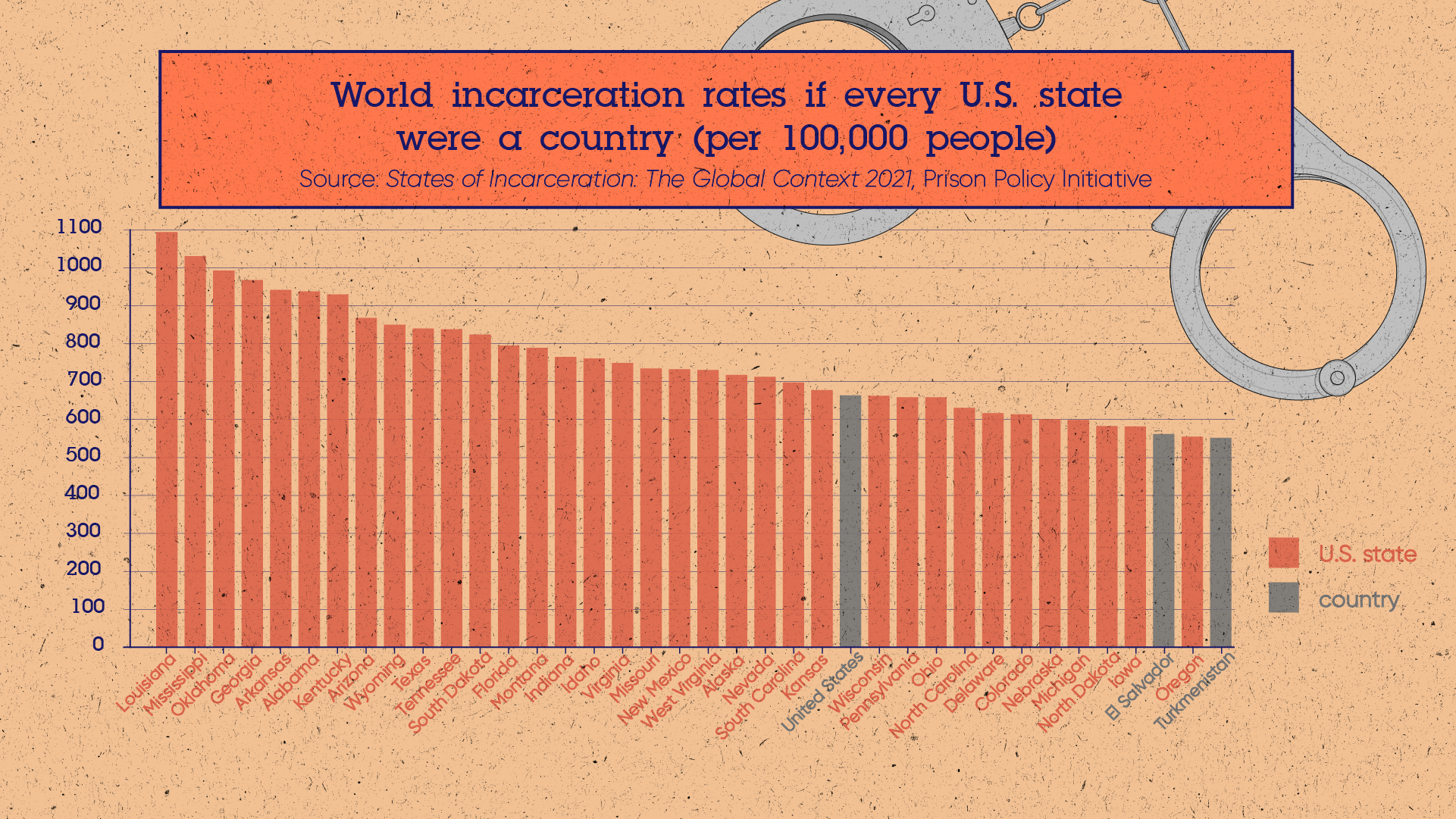
Does this mean that Americans are more prone to crime than other nationalities?
Of course not. In fact, the prison population over the past decades was bloated by a series of political campaigns and harsher sentencing legislation during the War on Drugs era from the 1970s to 1980s.
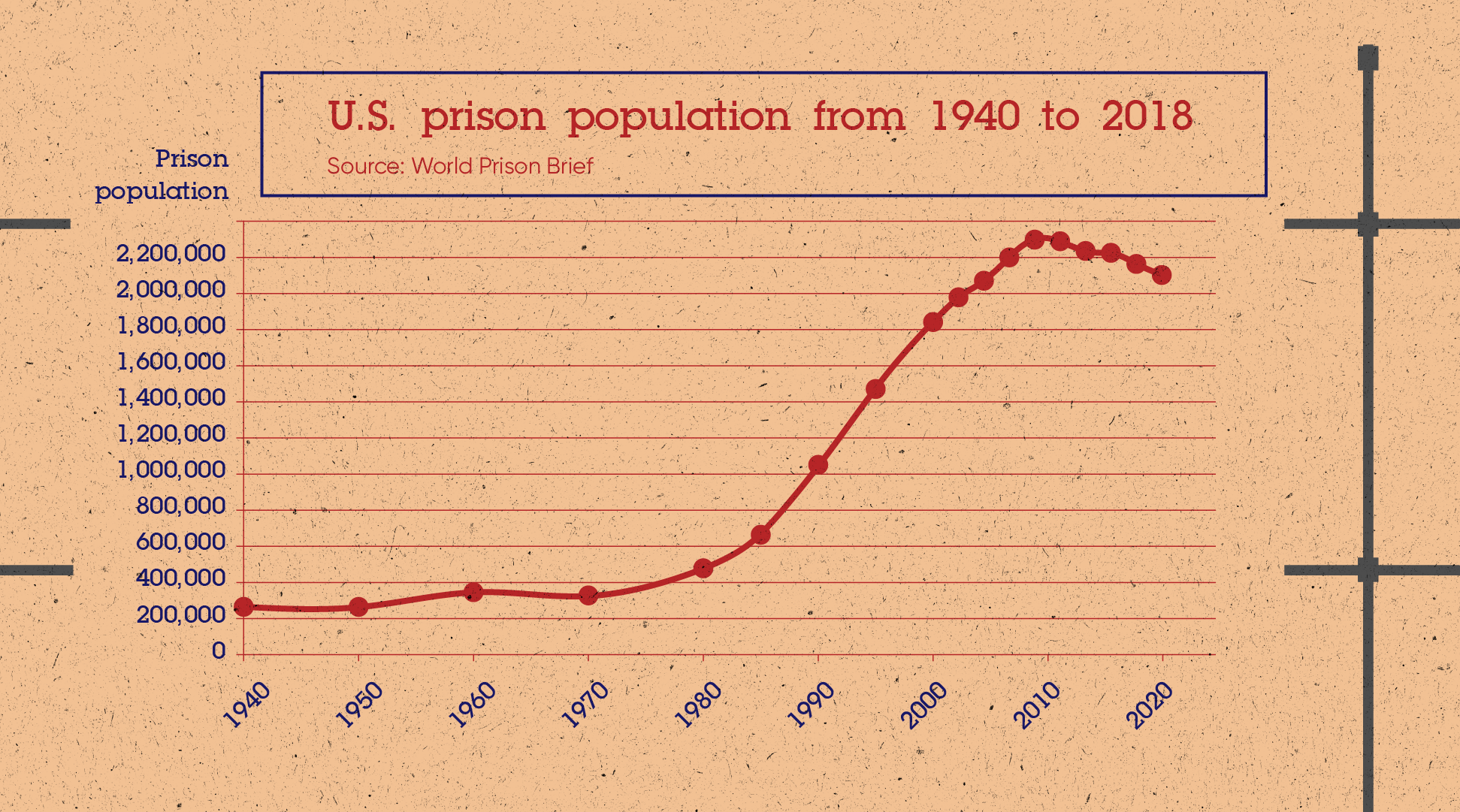
Nationwide, there was an abrupt rise in the number of people caged in the 1970s, and this trend kept accelerating through to the 2000s. Drug offences made up 63 percent of all federal prisoners in the U.S. in 1997.
Yet the weak connection between drug imprisonment and drug problems in the U.S. suggest that expanding incarceration is not likely to be effective in reducing drug crime, according to Pew Research Center.
For example, the U.S. Sentencing Commission found that in 2019 those defined as "high-level suppliers" or "importers" who take larger responsibilities in drug trades, only represented 11 percent of federal drug perpetrators, and lower-level actors like street dealers, couriers and mules made up around half of those. And they can be rapidly replaced.
So who does mass incarceration benefit? Here comes the next component of the prison–industrial complex. Overcrowded prisons make room for more profit opportunities for private corporations.
Both founded after President Ronald Reagan institutionalized the War on Drugs, CoreCivic and GEO Group collectively have over half of the prison contracts in the U.S.
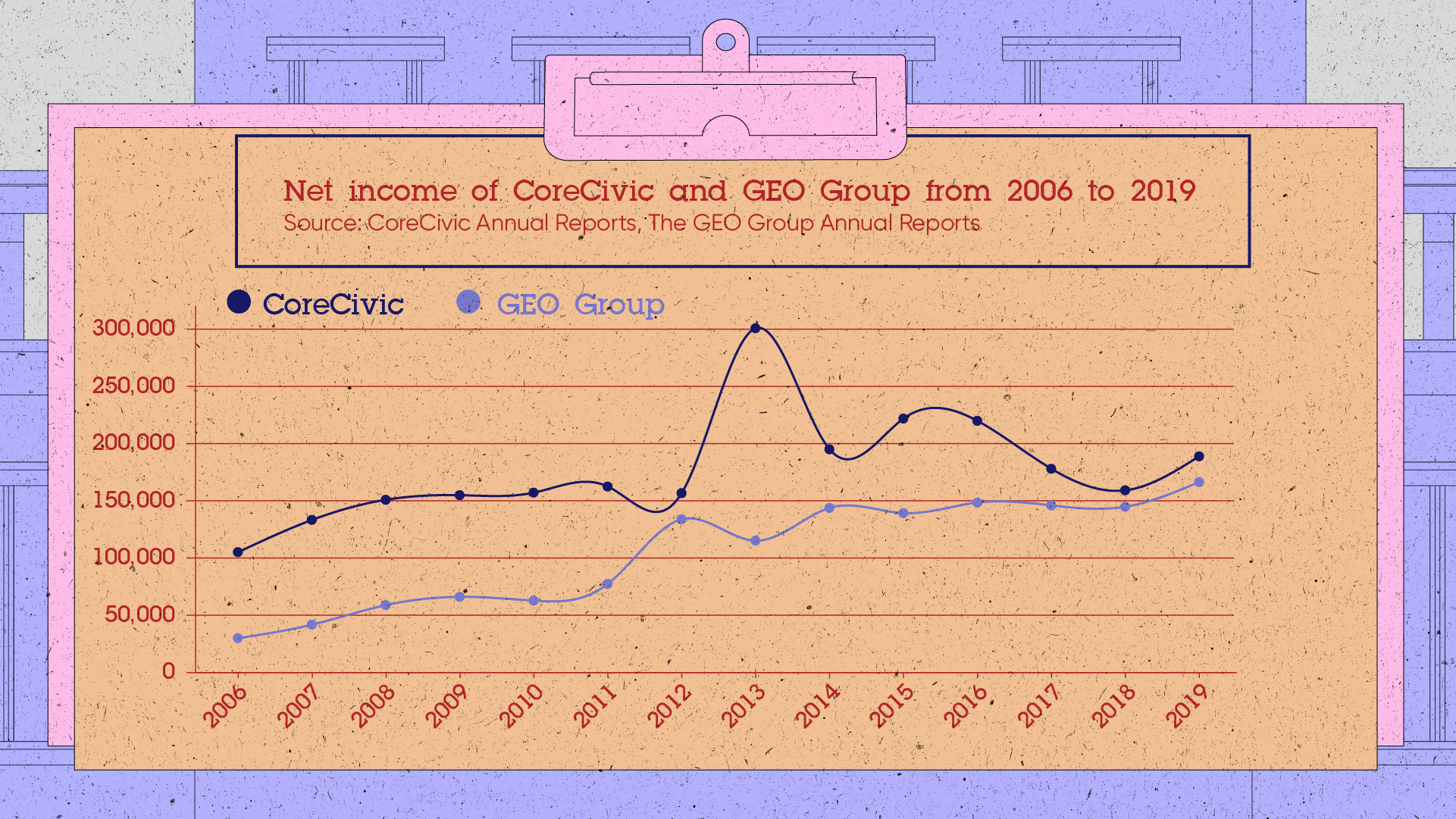
Despite occasional fluctuations, the net incomes of the two companies in a recent seven years were significantly higher than the last seven-year period between 2006 and 2012, as their annual reports indicate.
Overall, there are over 4,100 companies that aim to directly profit from the prison industry. They include private prisons, private companies with overpriced commissaries and telephone services, and those using underpaid or even unpaid prison labor in their supply chains.
U.S. criminal justice officials claim that prison labor programs offer job skills to inmates that help prepare them for life on the outside. But the U.S. still has one of the world's highest recidivism rates – 76.6 percent of prisoners are rearrested within five years.
In Norway, inmates who were unemployed before conviction saw an increase of 40 percent in employment rates after release. The recidivism rate in Norway is only 20 percent. In short, rehabilitation can be effective – so why isn't it in the U.S.?
Let's look at the money flows, the last and critical element of the prison-industrial complex. Public data shows that private corporations in the prison industry could be generous political spenders.
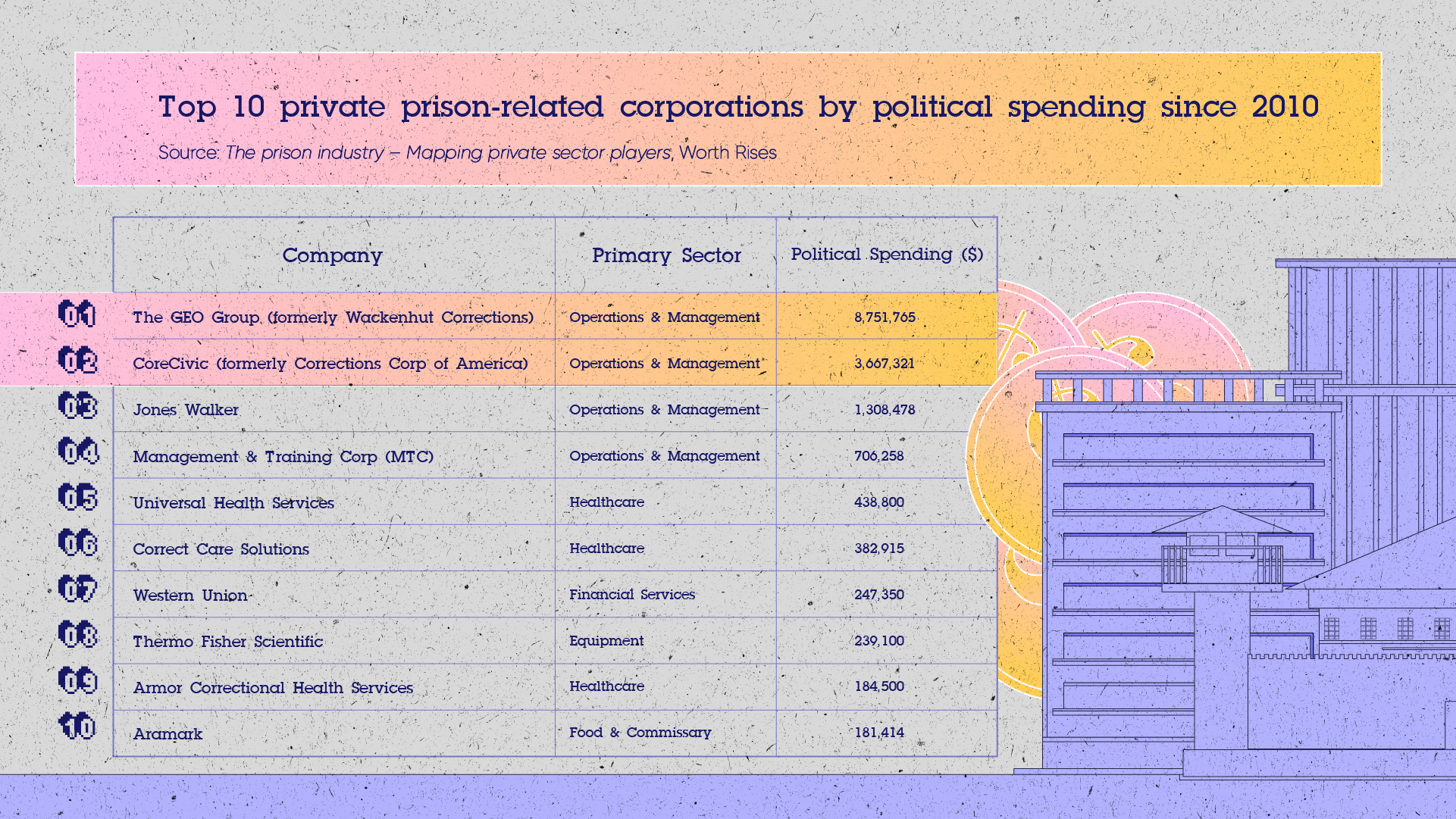
Since 2010, 48 companies have spent a combined $17 million on lobbying as well as financially supporting federal and state candidates, major party committees and ballot measure committees. And 44 of them have revenues from the prison industry only.
The top two on the list, GEO Group and CoreCivic donated heavily to Donald Trump during his presidential campaign in 2016. Less than a month into the Trump administration, then-Attorney General Jeff Sessions rescinded a six-month-old Obama directive aimed at curtailing the use of private prisons.
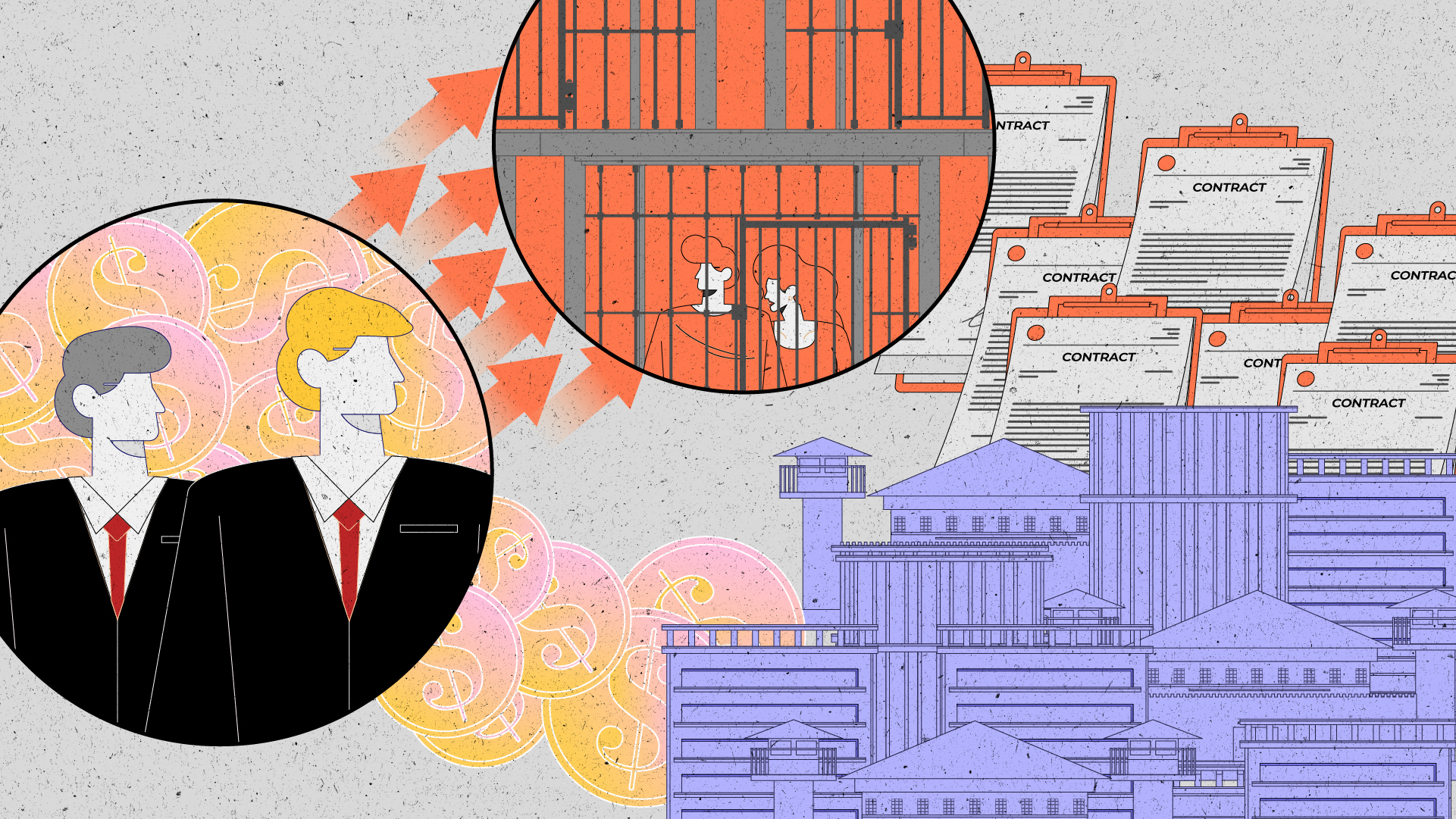
More prisoners mean more contracts and more opportunities for profit, contributing to higher political spending, and that in turn leads to support from the government to build a sentencing system that cages more people. That's how the cycle of the prison-industrial complex circulates – and who it benefits.
opinions@cgtn.com. Follow @thouse_opinions on Twitter to discover the latest commentaries in the CGTN Opinion Section.
No comments:
Post a Comment